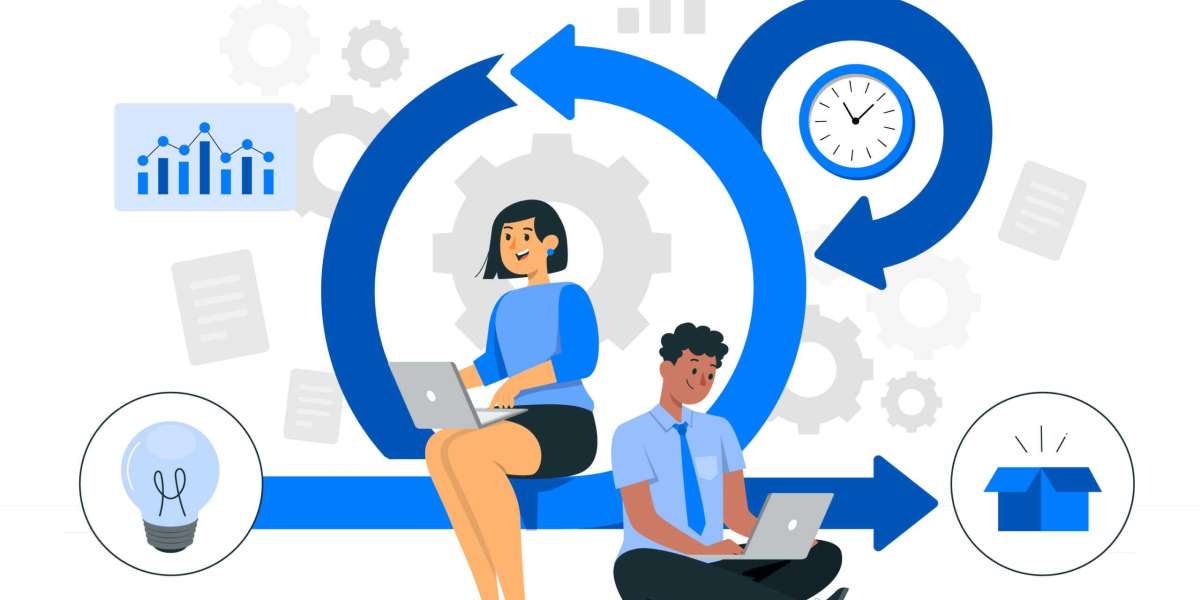Efficient management of employee data is a cornerstone of successful human resources (HR) operations. In today’s digital age, Workday provides a robust platform for HR professionals to streamline and enhance their data management processes. By leveraging Workday’s capabilities, HR departments can ensure accurate, timely, and actionable information that supports strategic decision-making and operational efficiency. This guide explores how to leverage Workday for efficient employee data management and highlights the importance of Workday Recruitment Training in optimizing these processes.
Understanding Workday's Capabilities for Employee Data Management
Workday offers a comprehensive suite of features to manage and optimize employee data. Key capabilities include:
- Centralized Data Repository: Workday provides a single, unified database where all employee information is stored. This centralized system ensures consistency and reduces the risk of data duplication and errors.
- Real-Time Updates: Workday’s cloud-based platform enables real-time updates and access to employee data. This feature ensures that HR professionals have the most current information available, which is crucial for accurate reporting and decision-making.
- Advanced Analytics: Workday offers powerful analytics tools that allow HR professionals to generate insights from employee data. These tools can help identify trends, track performance metrics, and support strategic planning.
- Automated Workflows: Workday’s automated workflows streamline HR processes, such as onboarding, performance management, and employee transitions. Automation reduces manual tasks, improves efficiency, and minimizes errors.
Best Practices for Leveraging Workday for Employee Data Management
To maximize the benefits of Workday for employee data management, consider implementing the following best practices:
Utilize Workday's Unified Data Model
Workday’s unified data model integrates employee data from various modules, including HR, payroll, and talent management. This integration ensures that all data is consistent and up-to-date across the system.
- Integrate Data Sources: Ensure that all relevant data sources, such as recruitment, performance, and compensation, are integrated into Workday.
- Maintain Data Accuracy: Regularly review and update data to ensure accuracy and completeness.
By utilizing Workday’s unified data model, you can improve data reliability and provide a comprehensive view of employee information.
Leverage Workday Analytics for Insights
Workday’s analytics tools offer valuable insights into employee data, helping HR professionals make informed decisions.
- Generate Custom Reports: Create custom reports to track key metrics, such as employee turnover, performance, and compensation.
- Analyze Trends: Use Workday’s analytical capabilities to identify trends and patterns in employee data, such as workforce demographics or engagement levels.
Leveraging Workday’s analytics tools enables data-driven decision-making and supports strategic HR initiatives.
Implement Automated Workflows
Automated workflows in Workday can streamline various HR processes, reducing manual effort and improving efficiency.
- Onboarding: Automate the onboarding process to ensure a smooth transition for new hires. Workday can manage tasks such as document collection, training schedules, and benefit enrollment.
- Performance Management: Use automated workflows to manage performance reviews, goal setting, and feedback processes.
Implementing automated workflows helps HR professionals focus on strategic activities and enhances the overall employee experience.
Ensure Data Security and Compliance
Protecting employee data and ensuring compliance with regulations is critical for HR departments.
- Access Controls: Set up role-based access controls in Workday to ensure that only authorized personnel can access sensitive employee data.
- Compliance Monitoring: Use Workday’s compliance features to track and manage adherence to labor laws, data protection regulations, and industry standards.
Ensuring data security and compliance helps protect employee information and reduces the risk of legal and regulatory issues.
Regularly Review and Update Data
Periodic reviews and employee data updates are essential for maintaining accuracy and relevance.
- Conduct Data Audits: Regularly audit employee data to identify and correct any discrepancies or outdated information.
- Update Records: Ensure that employee records are updated with any changes, such as promotions, transfers, or terminations.
Regular data reviews and updates ensure that HR professionals have accurate information for decision-making and reporting.
The Role of Workday Recruitment Training
Effective management of employee data also involves optimizing the recruitment process. Workday Recruitment Training plays a crucial role in ensuring that HR professionals are equipped with the skills needed to use Workday’s recruitment features effectively.
Master Recruitment Features
Workday Recruitment Training provides in-depth knowledge of recruitment features, such as candidate tracking, job requisition management, and applicant assessment. By mastering these features, HR professionals can streamline the recruitment process and manage candidate data efficiently.
Enhance Data Integration
Recruitment training helps HR professionals understand how to integrate recruitment data with other HR modules, such as onboarding and performance management. This integration ensures that candidate data seamlessly transitions into employee records once hired.
Improve Reporting and Analytics
Workday Recruitment Training covers how to use reporting and analytics tools specific to recruitment. This training helps HR professionals track key recruitment metrics, such as time-to-fill, cost-per-hire, and candidate source effectiveness.
Improved reporting and analytics capabilities enable better decision-making and optimization of the recruitment process.
Practical Applications of Workday for Employee Data Management
Onboarding and Offboarding
Use Workday to manage the onboarding and offboarding processes efficiently. Automate tasks such as document submission, training schedules, and exit interviews to ensure a smooth transition for employees.
Performance Management
Leverage Workday’s performance management features to track employee performance, set goals, and conduct evaluations. Use data from performance reviews to inform development plans and succession planning.
Compensation Management
Manage employee compensation using Workday’s compensation tools. Track salary data, manage compensation adjustments, and ensure alignment with market benchmarks and organizational pay structures.
Workforce Planning
Utilize Workday’s workforce planning features to forecast staffing needs, analyze workforce trends, and plan for future talent requirements. Use data insights to make informed decisions about recruitment and resource allocation.
Conclusion
Leveraging Workday for efficient employee data management involves utilizing its centralized data repository, real-time updates, advanced analytics, and automated workflows. By following best practices such as integrating data sources, leveraging analytics, and ensuring data security, HR professionals can optimize their data management processes.
Workday Recruitment Training is a valuable resource for mastering recruitment features and enhancing the efficiency of the recruitment process. This training helps HR professionals integrate recruitment data with other HR modules, improve reporting, and optimize recruitment strategies.
By effectively using Workday’s capabilities and investing in relevant training, HR departments can enhance their data management practices, support strategic decision-making, and contribute to overall organizational success.








